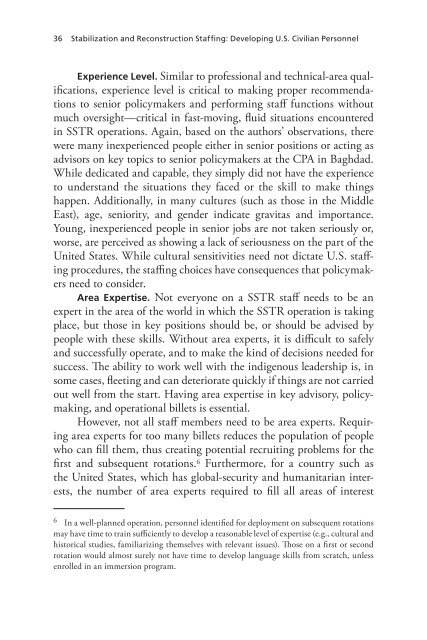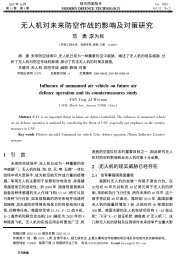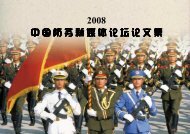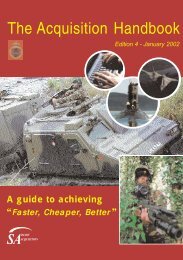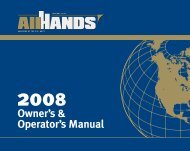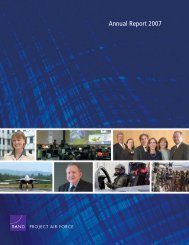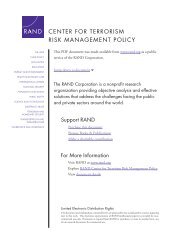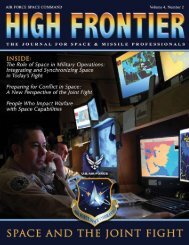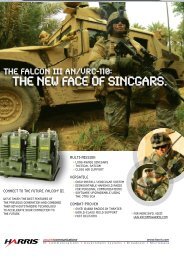Stabilization and Reconstruction Staffing - RAND Corporation
Stabilization and Reconstruction Staffing - RAND Corporation
Stabilization and Reconstruction Staffing - RAND Corporation
You also want an ePaper? Increase the reach of your titles
YUMPU automatically turns print PDFs into web optimized ePapers that Google loves.
36 <strong>Stabilization</strong> <strong>and</strong> <strong>Reconstruction</strong> <strong>Staffing</strong>: Developing U.S. Civilian PersonnelExperience Level. Similar to professional <strong>and</strong> technical-area qualifications,experience level is critical to making proper recommendationsto senior policymakers <strong>and</strong> performing staff functions withoutmuch oversight—critical in fast-moving, fluid situations encounteredin SSTR operations. Again, based on the authors’ observations, therewere many inexperienced people either in senior positions or acting asadvisors on key topics to senior policymakers at the CPA in Baghdad.While dedicated <strong>and</strong> capable, they simply did not have the experienceto underst<strong>and</strong> the situations they faced or the skill to make thingshappen. Additionally, in many cultures (such as those in the MiddleEast), age, seniority, <strong>and</strong> gender indicate gravitas <strong>and</strong> importance.Young, inexperienced people in senior jobs are not taken seriously or,worse, are perceived as showing a lack of seriousness on the part of theUnited States. While cultural sensitivities need not dictate U.S. staffingprocedures, the staffing choices have consequences that policymakersneed to consider.Area Expertise. Not everyone on a SSTR staff needs to be anexpert in the area of the world in which the SSTR operation is takingplace, but those in key positions should be, or should be advised bypeople with these skills. Without area experts, it is difficult to safely<strong>and</strong> successfully operate, <strong>and</strong> to make the kind of decisions needed forsuccess. The ability to work well with the indigenous leadership is, insome cases, fleeting <strong>and</strong> can deteriorate quickly if things are not carriedout well from the start. Having area expertise in key advisory, policymaking,<strong>and</strong> operational billets is essential.However, not all staff members need to be area experts. Requiringarea experts for too many billets reduces the population of peoplewho can fill them, thus creating potential recruiting problems for thefirst <strong>and</strong> subsequent rotations. 6 Furthermore, for a country such asthe United States, which has global-security <strong>and</strong> humanitarian interests,the number of area experts required to fill all areas of interest6 In a well-planned operation, personnel identified for deployment on subsequent rotationsmay have time to train sufficiently to develop a reasonable level of expertise (e.g., cultural <strong>and</strong>historical studies, familiarizing themselves with relevant issues). Those on a first or secondrotation would almost surely not have time to develop language skills from scratch, unlessenrolled in an immersion program.


